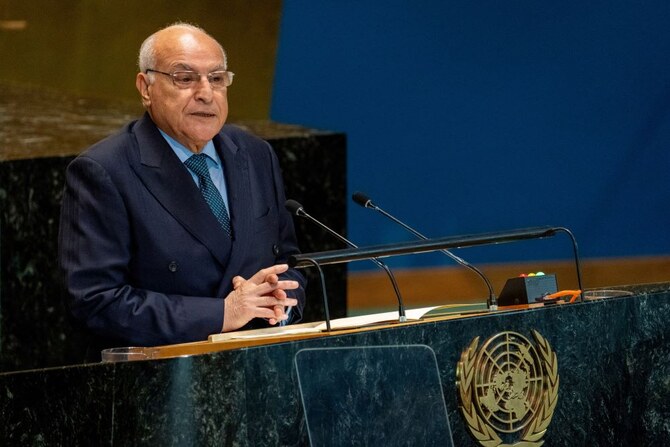LONDON: The UN must reform to meet the challenges facing the world, Algerian Foreign Minister Ahmed Attaf told the organization’s Summit of the Future in New York on Monday.
Addressing the UN ahead of the 79th General Assembly this week, he said an imbalance exists between member states, which needs to be fixed if issues are to be tackled successfully.
“The international community today, more than ever, needs to wake up to stake stock of the challenges we face,” Attaf added.
“The international community, our community, needs to rise up more than ever — and right now — to confront the various dangers lurking all over the world.”
He said a series of issues in different areas is straining international relations, and the UN needs to take a leading role in resolving them
“I’m referring to, for instance, crises and wars that are getting worse and growing in number day by day. I’m also referring to development gaps, which are only getting deeper. Moreover, there’s climate change and environmental dangers which have reached unprecedented levels,” he told assembled delegates.
“My country believes that a serious process must be begun so as to strike the necessary balance in international relations across all of its dimensions — political, economic and social.
“The current imbalance is a source of very serious tension, upheaval, all of which are thwarting international relations.”
Attaf said African states are being “marginalized” by the international community, “in the (UN) Security Council in particular, but also in various international financial and monetary institutions and international institutions generally speaking.”
He added that the Summit of the Future represents a step in the right direction, praising the work done by UN Secretary-General Antonio Gutteres and saying: “Algeria would like to extend its gratitude for the very positive momentum built up around this initiative.”
Attaf added that the “momentum (is) synonymous with hope — hope that the UN organization will take charge and shoulder its responsibility as an inclusive forum for achieving consensus, bringing together member states to confront various challenges.”
He said momentum, if combined with the reform he outlined, is vital for the world’s future, adding: “We stand convinced that the UN organization is absolutely vital. It can’t be replaced. Nonetheless, at the same time, we believe that the organization requires reform, reform that would ensure continuity but also that the organization adapts to rise up to the challenges and requirements of this era.
“Such reform would restore the organization to its vital role as the beating heart of international diplomacy and multilateral action.
“We need a reform that would allow the UN to respond to the aspirations of current and future generations, and to do so equitably and wholly.”

























